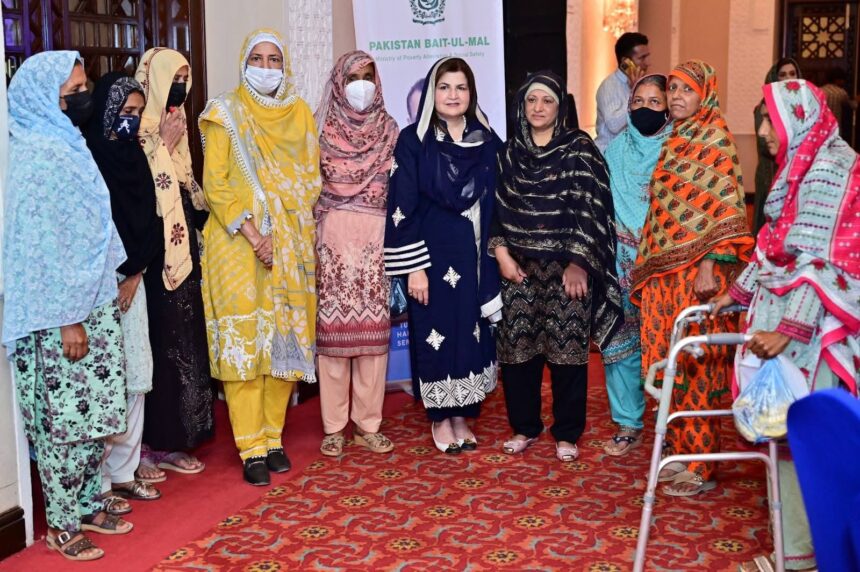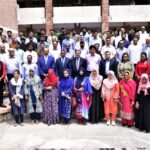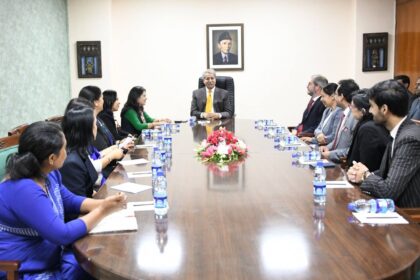**Parliamentary Secretary Applauds PNCU’s Role in Strengthening Pakistan’s Educational, Cultural, and Scientific Ties**
Ms. Farah Naz Akbar, Parliamentary Secretary for Federal Education and Professional Training, conducted an official visit to the Pakistan National Commission for UNESCO (PNCU), where she received a comprehensive overview of the organization’s mandate, achievements, and ongoing challenges. The visit underscored Pakistan’s growing engagement with UNESCO and ICESCO, while reaffirming the government’s commitment to advancing national and international priorities in education, science, and culture.
Senior officials at PNCU welcomed Ms. Akbar and provided a detailed briefing on the Commission’s structure and its legal foundation as established under Article VII of the UNESCO Constitution. The officials highlighted PNCU’s critical role as the national coordinating body for UNESCO and ICESCO initiatives in Pakistan. Key responsibilities include harmonizing national development goals with international priorities, building partnerships with academic and civil society stakeholders, facilitating international scholarships and fellowships, and serving as Pakistan’s central liaison for multilateral cooperation.
During the session, Ms. Akbar was briefed on Pakistan’s active participation and rising stature on the global stage. Notably, Pakistan currently holds a seat on the UNESCO Executive Board (2023–2027), and has earned significant accolades such as the UNESCO Prize for Girls’ and Women’s Education and the UNESCO International Literacy Prize in 2023. The establishment of eight UNESCO Chairs and two ICESCO Chairs was credited as evidence of the country’s strong academic and research profile.
In the cultural and environmental domains, PNCU provided updates on the maintenance of six UNESCO World Heritage Sites, management of 26 sites on the Tentative List, and the recent addition of two new Biosphere Reserves—Chitral Garmchashma and Gallies. The inclusion of Nowruz on the UNESCO Intangible Cultural Heritage List in 2024 was acknowledged as a significant cultural accomplishment.
The briefing also spotlighted educational milestones, such as setting up 40 smart classrooms for girls in Azad Jammu & Kashmir, submitting seven new projects through the UNESCO Participation Programme, and spearheading initiatives to promote STEM education and the Sustainable Development Goals (SDGs), with a special focus on SDG-4 (Quality Education).
Financial commitments were also addressed, with Pakistan pledging PKR 125.161 million to UNESCO (Paris) and PKR 80 million to ICESCO (Morocco) for 2025–2026. These contributions signal Pakistan’s sustained dedication to international cooperation in key sectors.
Despite these achievements, PNCU officials outlined several pressing challenges facing the Commission, including a shortage of administrative staff due to unfilled vacancies, limited capacity-building opportunities, insufficient operational funding, and the need for enhanced institutional coordination, particularly after the 18th Amendment.
Concluding her visit, Ms. Farah Naz Akbar lauded PNCU’s invaluable work and reiterated the Ministry’s commitment to reinforcing Pakistan’s international partnerships in education, science, and culture. She expressed a strong interest in supporting capacity-building programs and tackling institutional hurdles to better equip PNCU in fulfilling its growing responsibilities both at home and abroad.











